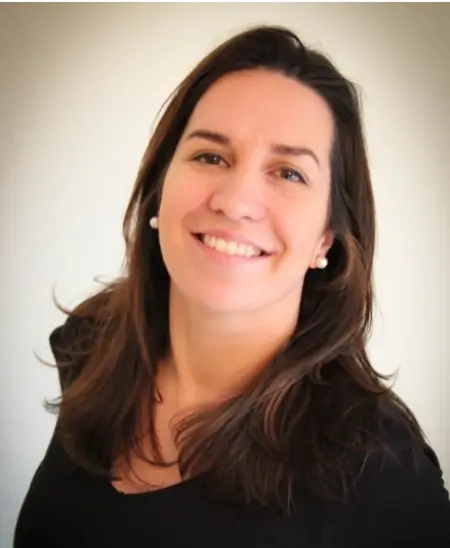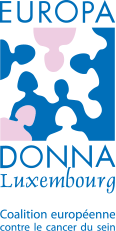Project 20 interviews
«Professionals speak about their daily work and their missions»
Interview with Madam Joëlle Leclerc, Breast-care nurse at the Centre Hospitalier du Nord – CHdN.
Joelle has had an interesting professional career. She started studying to be a nurse at the Lycée technique des professions de santé (LTPS) in 1999. After some years of professional experience, Joelle started working at the CHdN in 2004.
During this time, she worked in the department of gynaecological surgery, and came into contact with people suffering from breast cancer.
In 2009, she started in Münster in Germany at the University of Applied Sciences to obtain the necessary skills to become a breast- care nurse (BCN).
Joëlle was able to integrate this experience into her daily job at the CHdN.
In 2012, Joelle had a stroke, which took her a long time to recover from. But this young woman didn’t give up here. Her courage, and her joy for living helped her overcome the disabilities linked to her sudden illness. From 2019, she has been working as a breast-care nurse at the CHdN for four hours a day.
In her job, if an abnormality is suspected in a patient during a mammogram or a biopsy,in some cases Joelle makes immediate contact with the patient, and supports her throughout the whole treatment. Otherwise, her first contact with the patient is made just before surgery. Joelle recommends care, which is tailored to the patients’ individual situation. This can include supplying the patient with a care kit, and giving information about surgery, radiotherapy, chemotherapy/immunotherapy, and about the possible side effects following treatment. Joëlle also explains all the available complementary treatment — reflexology, yoga,reiki,relaxation, doing sport — in the case of negative side effects, or for general wellbeing.
In Joelle’s opinion it is essential to know how the patient feels, and to understand what they are prepared to do. She tries to see what the patients’ strategies for coping are, and to help them organise their daily lives. For single parents, it is particularly difficult to manage and go about daily business, because this type of crisis isn’t easy to deal with at all.
The BCN explains that some patients find it difficult to talk about their illness with their children.Therefore she has a library of children’s books, where the illness is explained in age-appropriate language.
Joëlle can also suggest and organize a temporary prothesis for the period following surgery. For this she needs lots of empathy and understanding to see if the patient is willing to use one.
Overall, the special care that Joëlle provides involves supporting the breast cancer patient from the moment of diagnosis back to normal life, and then if necessary, through any cases of recurrence, or palliative care.
Joëlle believes that it is essential to give the best advice and information as possible at all stages of the disease. Therefore she works in close collaboration with a multidisciplinary team : doctors, psychologists, physiotherapists, colleagues from chemotherapy and mammography departments, dieticians, social workers and people from outside such as help centres, specialized shops and various associations.
The breast-care nurse’s every day work isn’t that obvious: they have to be sensitive to those who are facing a cruel disease, and supporting them through the full range of emotions, or simply just listening and being there for them. So the exchange between the members of the multidisciplinary team is also vital.
Joëlle Leclerc and her colleague Tina Bastin (also a BCN) participate in various events, such as conferences on breast cancer, help with public relations and offer training to the care staff, and the students at the LTPS.

Joëlle thinks it is essential to encourage young women to carry out regular breast self-exams, and other preventive measures. She thinks that this topic should be addressed at secondary school level.
Above all, this dedicated BCN loves her profession. She wants to gain further experience, to learn from her patients, and to acquire more knowledge.
Her personal message :
“I have seen women who have changed difficult things in their lives to positives. They changed their priorities. The disease made them stronger. Crises can sometimes lead to new opportunities in life.”
Thank you so much Joëlle for your commitment, and we would like to compliment you on your courage.
The interview was conducted by Ms. Françoise Hetto-Gaasch, member of the committee of Europa Donna Luxembourg in June 2022.
Europa Donna Luxembourg Asbl
1b rue Thomas Edison L-1445 Strassen
Tél. : 621 47 83 94
E-mail : europadonna@pt.lu
